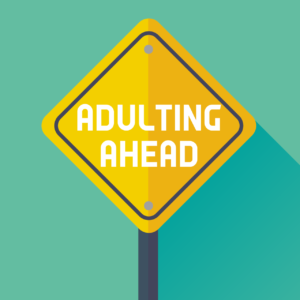
Adulting isn’t just about responsibilities like paying bills or holding down a job—it’s about emotional maturity. Terrance Real highlights the importance of “growing yourself up,” which means transitioning from emotional reactivity to emotional responsibility. While we may carry wounds or patterns from our past, Real emphasizes that as adults, we have the power and duty to heal, manage our emotions, and act in ways that align with our values. Growing yourself up is about choosing to operate from your wise adult self, which allows you to make thoughtful, conscious decisions rather than being driven by impulsive feelings or old habits.
Real’s approach to adulting is grounded in developing specific skills that foster balance, respect, and responsibility in all areas of life. At its core, this means observing your behavior without judgment and choosing to act from a place of integrity and self-respect. Let’s explore the five key areas that Real defines as essential to becoming a wise adult.
What It Means to Be a Wise Adult
When we grow our wise adult self, we learn to observe our behaviors without judgment and make conscious choices based on our values. We respond, rather than react, and stay grounded in respect—for ourselves and those around us. The wise adult is about acting with mindfulness, emotional intelligence, and accountability. Let’s break down the key areas of adulting skills that contribute to this growth.
1. Self-Worth: Living with Equality
A wise adult embraces their self-worth by neither inflating nor diminishing themselves. This means seeing yourself as neither “better than” nor “less than” others, but as an equal. You maintain a healthy self-esteem by recognizing your intrinsic value without comparison. In moments of challenge or conflict, instead of falling into superiority or inferiority, you act from a place of balanced self-worth.
2. Responsibility: Owning Your Imperfections
Part of being a wise adult is taking full responsibility for your thoughts, feelings, and behaviors. This doesn’t mean striving for perfection. Rather, it involves accepting that you’re human, and that mistakes and imperfections are part of life. When your actions negatively impact others, a wise adult takes accountability and seeks to repair relationships. This responsibility fosters integrity and trust in your relationships, as you own both your strengths and your flaws.
3. Boundaries: Protecting and Connecting
Healthy boundaries are a cornerstone of adulting. Acting as a wise adult means practicing what Real calls “controlled vulnerability.” This is the balance between opening up to others and protecting yourself. You express yourself authentically, but you also listen with curiosity. Setting boundaries allows you to engage with others safely, without over-exposing yourself or shutting down. It also means saying no when necessary, filtering what you hear, and practicing containment—knowing when to hold back your reactions in order to maintain connection and self-protection.
4. Dependency and Self-Care: Asking for What You Need
Another essential part of Real’s approach is understanding healthy dependency. As a wise adult, you engage in self-care by attending to your needs and wants. You don’t avoid asking for help out of shame or fear, and you don’t hesitate to say no when needed. Real’s perspective encourages us to embrace interdependence—acknowledging that we all need support from time to time, while also maintaining our ability to care for ourselves.
5. Moderation: Finding Balance in All Things
Perhaps one of the most important aspects of the wise adult is practicing moderation. This means finding the balance between expressing your authentic self and practicing containment. You allow yourself to be spontaneous and imperfect, but with awareness of the impact your actions have on others. A wise adult avoids extremes and seeks moderate solutions, understanding that balance leads to healthier, more sustainable outcomes in life and relationships.
Conclusion
Terrance Real’s approach to adulting challenges us to grow into our wise adult self—a version of ourselves that is mindful, responsible, and respectful. By developing self-worth, taking responsibility, setting healthy boundaries, engaging in self-care, and practicing moderation, we can navigate life’s complexities with grace and confidence. The wise adult isn’t about being flawless, but about being fully present, accountable, and engaged in relationships and life.
